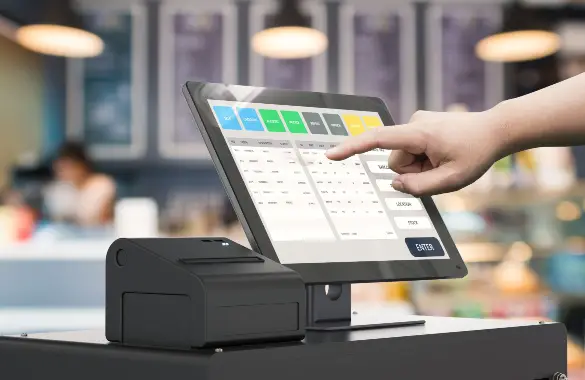
There are several steps to follow before you can install small business point of sale system. The best point of sale, or POS systems, encompass a variety of features that alleviate day-to-day operations for modern business owners. With these systems installed, small business owners can easily begin accepting all major credit and debit cards. However, there are several additional incentives to your system installation. With their numerous small business advantages, it is essential for modern company owners to install these systems. Point of sale tools are essential for managers in small businesses. If you are interested in the essential steps, read on to learn about how to choose the best point of sale systems for small business.
Assess Your System Needs
First, you need to assess the needs of your POS system. Small business point of sale systems offer a variety of features to manage operational complexity. Before you install a system, you need to ask yourself what needs you are trying to accomplish. Most businesses use POS systems for payment processing. However, you can additionally find systems with features dedicated to accounting, payroll, reporting and analytics. At the same time, there are even point of sale systems dedicated specifically for inventory, employee, and customer relationship management (CRM). Before you install your small business POS system, be sure to assess the needs you are trying to fulfill.
Consider Your Industry
The next step in selecting your small business point of sale system is to consider the industry you are in. There are small business POS systems specially designed for a number of industries. Before you make your selection, research which each provider offers businesses in your industry. POS systems for restaurants include designs for floor plans, menu templates, and multiple points of access. Systems for retail business on the other hand, likely focus more on a physical inventory count, and storing customer data. At the same time, manufacturing businesses have systems that monitor the performance of equipment, as well as units produced. Before you select your small business POS selection, be certain to consider your industry.
Calculate Hardware Investment
Installing a small business system requires a significant investment in associated hardware. Different systems have different equipment costs and required hardware needed. Be certain to calculate all of the associated costs before making your selection. One of the most expensive costs associated with your POS purchase is your display system. The display system for some providers is a simple iPad or tablet, while others require you to install a sophisticated monitor. On top of this, you need to acquire credit card terminals that process swiped, chip, and manual entries. You may even need to get equipment like barcode scanners, cash drawers, or eCommerce integrations. Typically, this equipment is rented to clients in exchange for a monthly rate, however, there are sometimes options to purchase hardware outright. Before you purchase a system, be sure to calculate the cost of point of sale equipment.
Ensure Adequate Customer Support
Before you choose your small business POS system, you need to ensure adequate customer support. Hopefully, with effective systems in place, you will rarely require custom support services. However, when you require assistance, you need it promptly and efficiently. Your business cannot pause while your point of sale system is repaired. To ensure efficient operations, look for POS providers with 24/7 customer support. These businesses can provide you with around-the-clock customer service whenever you acknowledge a problem in your system. Experienced customer service reps can help you with comprehensive walkthroughs to quickly restore your system and ensure issues do not happen again.
Compare Transaction Fees
You need to compare transaction fees in order to select the best small business POS system. Transaction fees are a major component of selecting your system. Different systems incur fees for a variety of different purposes. Many providers offer a flat transaction fee for tapped, dipped, or swiped credit card payments. However, these fees are often more expensive for credit card payments that are keyed in, or processed by card-on-file. Transactional fees often vary depending on the types of credit cards you plan on accepting. Prior to selecting your small business POS system, compare credit card processing fees across providers.
There are several steps to choose the best point of sale system for your small business. First, you need to address the needs of your system. You need to consider the industry you are in. Then, compare transaction fees across system providers. Then, calculate your associated hardware investment. At the same time, you need to ensure providers offer adequate customer support. Consider the points mentioned above to learn about how to choose the best point of sale systems for small business.
 Business First Family Business, Accounting, Finance, Investing, Marketing And Management
Business First Family Business, Accounting, Finance, Investing, Marketing And Management